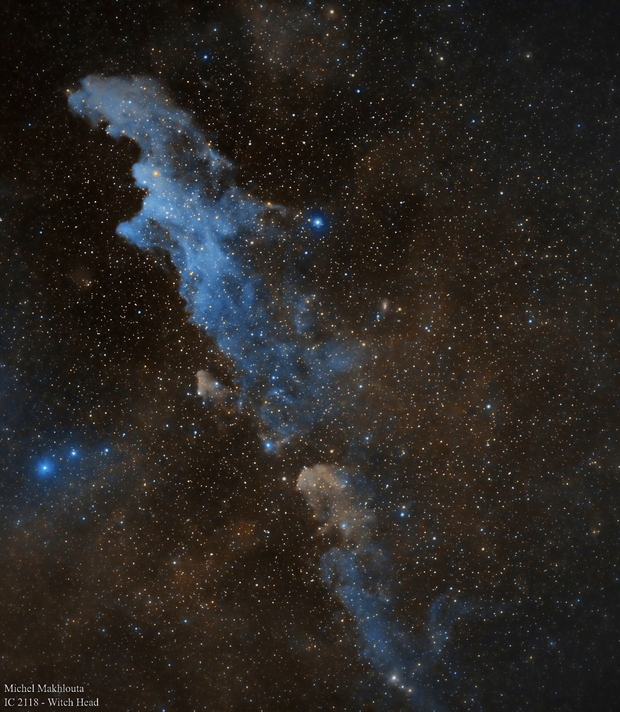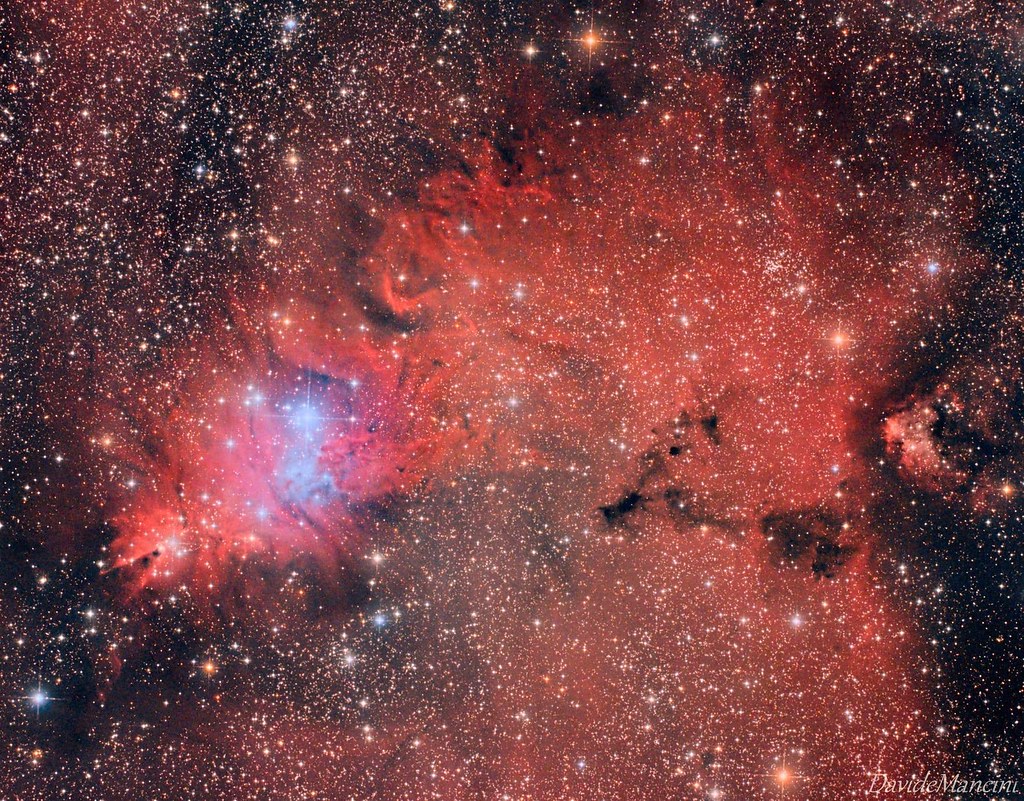Submissions: 2021 January
Submissions: 2021 January
__________________________________________________________________________________________________
Please post your images here.
Please see this thread before posting images; posting images demonstrates your agreement with
the possible uses for your image.
If hotlinking to an image, please ensure it is under 500K.
Hotlinks to images over 500K slow down the thread too much and will be disabled.
Thank you!
_________________________________________________________________________________________________
<- Previous submissions
Please post your images here.
Please see this thread before posting images; posting images demonstrates your agreement with
the possible uses for your image.
If hotlinking to an image, please ensure it is under 500K.
Hotlinks to images over 500K slow down the thread too much and will be disabled.
Thank you!
_________________________________________________________________________________________________
<- Previous submissions
Know the quiet place within your heart and touch the rainbow of possibility; be
alive to the gentle breeze of communication, and please stop being such a jerk. — Garrison Keillor
alive to the gentle breeze of communication, and please stop being such a jerk. — Garrison Keillor
Re: Submissions: 2021 January

Rho Ophiuchi cloud complex over Mt. Haeckel and nearby peaks by Dheera Venkatraman
This is the Rho Ophiuchi cloud complex setting over Mt. Haeckel and other peaks in the vinicity of Sabrina Lake in California, as seen with a 100mm lens on a full frame camera. The cloud complex covers an angular area of 4.5 x 6.5 degrees. That's about 9 by 13 full moons, which is huge, but it's difficult to see these gas and dust clouds with the naked eye. You can, however, clearly make out the star formation to the right of the Milky Way in summer, and if you grab a pair of binoculars you might be able to make out a little of these faint clouds!
This image used about 2 hours of stacked and tracked data to de-noise a single reference image. (I had pre-calculated that this star formation would set over these mountains, tracked and exposed the sky until it set to the position I wanted, and then turned the tracker off and continued to take exposures of the ground. I then stacked all the images with respect to the reference image, i.e. the last image before the tracker was turned off. The result is a low noise, detailed version of that noisy reference image.)
I'm doing an entire series of deep sky objects taken together with landscapes ("deepscapes") to show their visual sizes. Follow me on Instagram for more!
Instagram: https://instagram.com/dheeranet/
Personal website: https://dheera.net/
Last edited by dheera on Sat Jan 02, 2021 3:56 am, edited 3 times in total.
Re: Submissions: 2021 January

Milky Way over volcanic fissures by Dheera Venkatraman
Milky Way galactic core over volcanic fissures in Mono, California. Taken in July 2020. Bright dot to the upper left is Jupiter. Rho Ophiuchi (previous submission above) can be seen to the right of the Milky Way. This image was taken with a 21mm lens on a full frame camera with the aid of a star tracker to acquire a lower noise image of the sky. A low noise, long exposure of the sky acquired with the tracker on, and a low noise long exposure of the foreground acquired with the tracker off were matched and blended into a high-noise reference image to denoise it.
Instagram: https://instagram.com/dheeranet/
Personal website: https://dheera.net/
-
vanamonde81
- Science Officer
- Posts: 141
- Joined: Fri Apr 12, 2013 7:46 am
Re: Submissions: 2021 January
Lunar and Solar Extremities 2020
Copyright: György Soponyai
This overlapped photo sequence presents the biggest and smallest Lunar and Solar disks in a year taken with the same telescope and camera. However the bottom right part of the image was taken in 2021 as last January there were no spots on the surface of the Sun but today (on the day of the perihelium) sunspot #2794 is still visible at the edge of the disk.

Canon EOS 5D Mark II + SkyWatcher 254/1200 Dobson + Baader AstroSolar filter (Solar photos)
Moon: 2020.10.31. 404200km (perigeum)
2020.04.08. 354800km (apogeum)
Sun: 2020.07.04. 152.1M km (aphelium)
2021.01.02. 147.1M km (perihelium)
Copyright: György Soponyai
This overlapped photo sequence presents the biggest and smallest Lunar and Solar disks in a year taken with the same telescope and camera. However the bottom right part of the image was taken in 2021 as last January there were no spots on the surface of the Sun but today (on the day of the perihelium) sunspot #2794 is still visible at the edge of the disk.

Canon EOS 5D Mark II + SkyWatcher 254/1200 Dobson + Baader AstroSolar filter (Solar photos)
Moon: 2020.10.31. 404200km (perigeum)
2020.04.08. 354800km (apogeum)
Sun: 2020.07.04. 152.1M km (aphelium)
2021.01.02. 147.1M km (perihelium)
-
Efrem Frigeni
- Ensign
- Posts: 30
- Joined: Wed Jul 13, 2016 2:39 pm
Re: Submissions: 2021 January
M42 - The Magnificent Orion Nebula
https://www.astroefrem.com/gallery/blog ... 6-m42.html
Copyright: Efrem Frigeni
LRGB Composition from Imagna's Valley (Alps - Italy)
https://www.astroefrem.com/gallery/blog ... 6-m42.html
Copyright: Efrem Frigeni
LRGB Composition from Imagna's Valley (Alps - Italy)
Last edited by Efrem Frigeni on Sat Jan 02, 2021 11:15 pm, edited 1 time in total.
mail to : efrem.frigeni@gmail.com
Re: Submissions: 2021 January

The Jellyfish nebula (IC443) is the result of an extremely energetic supernova that occurred in the middle of a dense cloud of intergalactic gas. Blast waves from the supernova explosion created concentric shell structures roughly 70 light years across. To give you a sense of the incredible size of this explosion, 70 light years is roughly 4 million times larger than the distance Earth is from our Sun.
This image is about 40 hours of total narrowband exposure. The full resolution image is 60megapixels and can be found here: https://www.astrobin.com/full/9b9yra/0/
My Instagram: https://www.instagram.com/czaja.astro/
Thank you for your consideration and clear skies!
Will Czaja
-
akashanandh
- Asternaut
- Posts: 1
- Joined: Sat Dec 23, 2017 4:16 am
Re: Submissions: 2021 January
The Great Conjunction of 2020 - The waltz of Jupiter & Saturn
All of us waited for the Great Conjunction with bated breath, and the celestial spectacle took our breath away in December 2020. Having had an anxious eye on the gas giants as they came together in our skies, I had to take advantage of the few clear nights last month. Here, I've put together images from the (partly) clear evenings here, in Singapore, to show Jupiter and Saturn together in 9 stages, Jupiter & Saturn appearing closer from 11 Dec, closest on 21 Dec, and then moving away from each other.
EXIF details:
Takahashi FS-60Q 60mm refractor, f/10, Canon EOS R, ISO 1600, 0.5-2.0 seconds (depending on sky conditions for each image).
Instagram: https://www.instagram.com/akashanandh/
Facebook: https://www.facebook.com/AkashAnandhAstrophotography
All of us waited for the Great Conjunction with bated breath, and the celestial spectacle took our breath away in December 2020. Having had an anxious eye on the gas giants as they came together in our skies, I had to take advantage of the few clear nights last month. Here, I've put together images from the (partly) clear evenings here, in Singapore, to show Jupiter and Saturn together in 9 stages, Jupiter & Saturn appearing closer from 11 Dec, closest on 21 Dec, and then moving away from each other.
EXIF details:
Takahashi FS-60Q 60mm refractor, f/10, Canon EOS R, ISO 1600, 0.5-2.0 seconds (depending on sky conditions for each image).
Instagram: https://www.instagram.com/akashanandh/
Facebook: https://www.facebook.com/AkashAnandhAstrophotography
-
michelmakhlouta
- Asternaut
- Posts: 8
- Joined: Tue Dec 15, 2020 2:46 pm
Re: Submissions: 2021 January
Hi,
I would like to submit my IC2118 image, that I've taken from Lebanon, around mid December 2020.
Title: The Witch Head Nebula - An Ancient Relic
Location: Aaqoura, Lebanon
Description: The Witch Head nebula is an extremely faint reflection nebula believed to be an ancient supernova remnant or gas cloud illuminated by nearby supergiant star Rigel. It lies in the Orion constellation, about 900 light-years from Earth. The nature of the dust particles, reflecting blue light better than red, is a factor in giving the Witch Head its blue color.
https://cdn.astrobin.com/thumbs/Oig1Joy ... czOqwr.jpg
Rig details:
Mount: Sky Watcher GTi
OTA: Samyang 135mm @F2
Camera: ZWO ASI1533MC
Autoguiding: ZWO ASI224MC + ZWO mini guidescope 30/F4
Integration: 300*60seconds, total of 5 hours
Best Regards,
Michel Makhlouta
https://www.astrobin.com/users/makhlouta/
I would like to submit my IC2118 image, that I've taken from Lebanon, around mid December 2020.
Title: The Witch Head Nebula - An Ancient Relic
Location: Aaqoura, Lebanon
Description: The Witch Head nebula is an extremely faint reflection nebula believed to be an ancient supernova remnant or gas cloud illuminated by nearby supergiant star Rigel. It lies in the Orion constellation, about 900 light-years from Earth. The nature of the dust particles, reflecting blue light better than red, is a factor in giving the Witch Head its blue color.
https://cdn.astrobin.com/thumbs/Oig1Joy ... czOqwr.jpg
Rig details:
Mount: Sky Watcher GTi
OTA: Samyang 135mm @F2
Camera: ZWO ASI1533MC
Autoguiding: ZWO ASI224MC + ZWO mini guidescope 30/F4
Integration: 300*60seconds, total of 5 hours
Best Regards,
Michel Makhlouta
https://www.astrobin.com/users/makhlouta/
Last edited by bystander on Sun Jan 03, 2021 6:22 pm, edited 1 time in total.
Reason: Please, no hot links to images > 500KB. Substituted smaller image,
Reason: Please, no hot links to images > 500KB. Substituted smaller image,
-
Thierry Legault
- Ensign
- Posts: 85
- Joined: Wed May 26, 2010 4:45 pm
Re: Submissions: 2021 January
Just back from the (rainy!) eclipse in Chile, I drove to southern France to immortalize the historical conjunction of Jupiter and Saturn on December 22.
I tried to reproduce the vision I had of the two planets (including the Great Red Spot of Jupiter) and the four galilean satellites in a dark blue sky at sunset through the eyepiece of the CFF200 8" apo refractor.
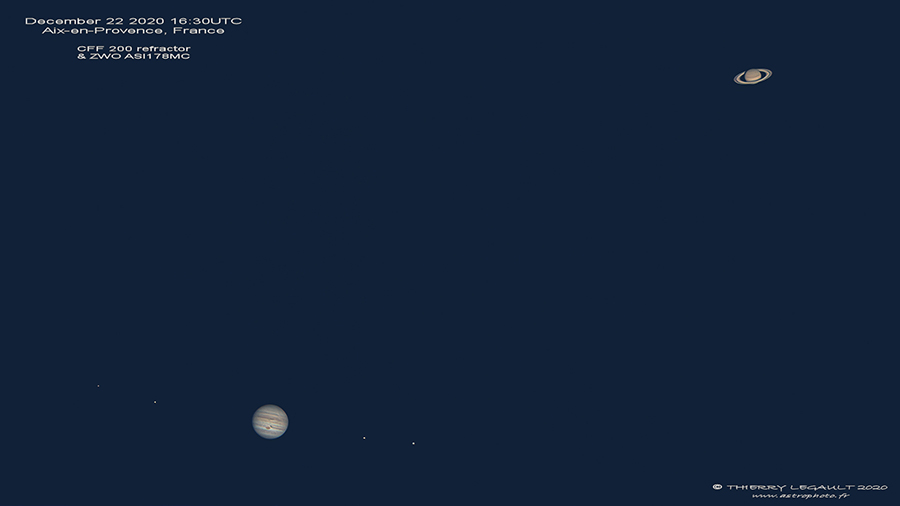
Larger image: http://www.astrophoto.fr/conjunction_ju ... 222_fb.jpg

I tried to reproduce the vision I had of the two planets (including the Great Red Spot of Jupiter) and the four galilean satellites in a dark blue sky at sunset through the eyepiece of the CFF200 8" apo refractor.

Larger image: http://www.astrophoto.fr/conjunction_ju ... 222_fb.jpg
-
SamuelTarin
- Asternaut
- Posts: 2
- Joined: Sun Jan 03, 2021 4:11 pm
Re: Submissions: 2021 January
6 YEARS SOLARGRAPHS
here is a photo montage of 6 solargraphs over 6 years, from equinox to winter solstice to see the course of the sun in the sky from the same place over 6 years.
each photo is a 3 months exposure.
Can with photo paper. At the end, i make a photo of the photo paper with the ghost image and work it on photoshop.
It's very interesting to see the difference of sunshine.
samuel Tarin Copyright: Samuel TARIN
here is a photo montage of 6 solargraphs over 6 years, from equinox to winter solstice to see the course of the sun in the sky from the same place over 6 years.
each photo is a 3 months exposure.
Can with photo paper. At the end, i make a photo of the photo paper with the ghost image and work it on photoshop.
It's very interesting to see the difference of sunshine.
samuel Tarin Copyright: Samuel TARIN
-
thomasroell
- Ensign
- Posts: 28
- Joined: Tue Oct 27, 2020 7:23 pm
Re: Submissions: 2021 January
A pierced California Nebula, NGC 1499
While editing this image I saw a bright trail in one of the shots. It might be a meteorite or maybe a satellite which caught the sun while rotating. Whatever it was, I think it adds some scale to this immensely large nebula, so I edited it back in after stacking the frames.
I hope you like it!
RGB 25 x 300 sec ISO 3200
Total exposure time 2 hours and 5 minutes
🖥 Edited in AstroPixel Processor, Photoshop and Lightroom
.
 Sky-watcher HEQ5, TS-Optics 115/800 Triplet APO, Svbony 60 mm guidescope with a ZWO ASI120MM guidecamera.
Sky-watcher HEQ5, TS-Optics 115/800 Triplet APO, Svbony 60 mm guidescope with a ZWO ASI120MM guidecamera.
🕹ZWO ASIAIR
 Canon EOS 6Da, Optolong L-Enhance filter
Canon EOS 6Da, Optolong L-Enhance filter
While editing this image I saw a bright trail in one of the shots. It might be a meteorite or maybe a satellite which caught the sun while rotating. Whatever it was, I think it adds some scale to this immensely large nebula, so I edited it back in after stacking the frames.
I hope you like it!
RGB 25 x 300 sec ISO 3200
Total exposure time 2 hours and 5 minutes
🖥 Edited in AstroPixel Processor, Photoshop and Lightroom
.
🕹ZWO ASIAIR
Re: Submissions: 2021 January
Wow, dheera, I absolutely love that "looming color bomb" hanging over Mt. Haeckel! It looks absolutely truly amazing! And it's fantastic to see how large this familiar cosmic "nebula-scape" is compared with Earthly sights.dheera wrote: ↑Sat Jan 02, 2021 12:56 am
Rho Ophiuchi cloud complex over Mt. Haeckel and nearby peaks by Dheera Venkatraman
This is the Rho Ophiuchi cloud complex setting over Mt. Haeckel and other peaks in the vinicity of Sabrina Lake in California, as seen with a 100mm lens on a full frame camera. The cloud complex covers an angular area of 4.5 x 6.5 degrees. That's about 9 by 13 full moons, which is huge, but it's difficult to see these gas and dust clouds with the naked eye. You can, however, clearly make out the star formation to the right of the Milky Way in summer, and if you grab a pair of binoculars you might be able to make out a little of these faint clouds!
This image used about 2 hours of stacked and tracked data to de-noise a single reference image. (I had pre-calculated that this star formation would set over these mountains, tracked and exposed the sky until it set to the position I wanted, and then turned the tracker off and continued to take exposures of the ground. I then stacked all the images with respect to the reference image, i.e. the last image before the tracker was turned off. The result is a low noise, detailed version of that noisy reference image.)
I'm doing an entire series of deep sky objects taken together with landscapes ("deepscapes") to show their visual sizes. Follow me on Instagram for more!
Instagram: https://instagram.com/dheeranet/
Personal website: https://dheera.net/
Thanks for this unforgettable view!
Ann
Color Commentator
Re: Submissions: 2021 January
That's a fine image of the Jellyfish Nebula! Welcome to Starship Asterisk!wczaja wrote: ↑Sat Jan 02, 2021 4:50 pm
The Jellyfish nebula (IC443) is the result of an extremely energetic supernova that occurred in the middle of a dense cloud of intergalactic gas. Blast waves from the supernova explosion created concentric shell structures roughly 70 light years across. To give you a sense of the incredible size of this explosion, 70 light years is roughly 4 million times larger than the distance Earth is from our Sun.
This image is about 40 hours of total narrowband exposure. The full resolution image is 60megapixels and can be found here: https://www.astrobin.com/full/9b9yra/0/
My Instagram: https://www.instagram.com/czaja.astro/
Thank you for your consideration and clear skies!
Will Czaja
Ann
Color Commentator
Re: Submissions: 2021 January
That's a really fascinating series of images of the Great Conjunction!akashanandh wrote: ↑Sat Jan 02, 2021 5:16 pm The Great Conjunction of 2020 - The waltz of Jupiter & Saturn
All of us waited for the Great Conjunction with bated breath, and the celestial spectacle took our breath away in December 2020. Having had an anxious eye on the gas giants as they came together in our skies, I had to take advantage of the few clear nights last month. Here, I've put together images from the (partly) clear evenings here, in Singapore, to show Jupiter and Saturn together in 9 stages, Jupiter & Saturn appearing closer from 11 Dec, closest on 21 Dec, and then moving away from each other.
EXIF details:
Takahashi FS-60Q 60mm refractor, f/10, Canon EOS R, ISO 1600, 0.5-2.0 seconds (depending on sky conditions for each image).
Instagram: https://www.instagram.com/akashanandh/
Facebook: https://www.facebook.com/AkashAnandhAstrophotography
The Great Conjunction of 2020 - The waltz of Jupiter & Saturn.png
Welcome to Starship Asterisk!
Ann
Color Commentator
Re: Submissions: 2021 January
That's a fascinating series of solargraphs! Welcome to Starship Asterisk!SamuelTarin wrote: ↑Sun Jan 03, 2021 4:20 pm 6 YEARS SOLARGRAPHS
here is a photo montage of 6 solargraphs over 6 years, from equinox to winter solstice to see the course of the sun in the sky from the same place over 6 years.
each photo is a 3 months exposure.
Can with photo paper. At the end, i make a photo of the photo paper with the ghost image and work it on photoshop.
It's very interesting to see the difference of sunshine.
samuel Tarin Copyright: Samuel TARIN
Ann
Color Commentator
Re: Submissions: 2021 January
Dramatic Helix nebula
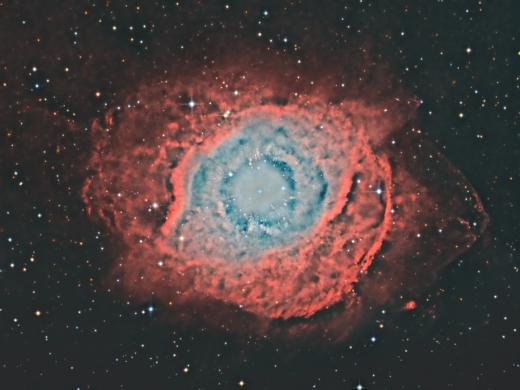
High-resolution image and technical data: http://www.javierlaina.es/IMAGENES/Helix.html
Javier Gómez Laina (Spain)
http://www.javierlaina.es/indexeng.html

High-resolution image and technical data: http://www.javierlaina.es/IMAGENES/Helix.html
Javier Gómez Laina (Spain)
http://www.javierlaina.es/indexeng.html
Re: Submissions: 2021 January
https://www.flickr.com/photos/189096298 ... 799234191/
OVNI-M FOM 2100
SkyWatcher Dobson 12”
L-Extreme filter
Google Pixel 3 smartphone
That is how you will see the Cosmo's through the OVNI eyepiece with naked eye.
Adriano Massatani,Davide Mancini,Perth,Australia
(www.testar.com.au)
OVNI-M FOM 2100
SkyWatcher Dobson 12”
L-Extreme filter
Google Pixel 3 smartphone
That is how you will see the Cosmo's through the OVNI eyepiece with naked eye.
Adriano Massatani,Davide Mancini,Perth,Australia
(www.testar.com.au)
Last edited by bystander on Mon Jan 04, 2021 3:54 pm, edited 1 time in total.
Reason: All <img> tags require an image url not a page url.
Reason: All <img> tags require an image url not a page url.
-
Astrodude13
- Ensign
- Posts: 36
- Joined: Sun Jan 19, 2014 11:44 pm
- felopaul
- Ensign
- Posts: 96
- Joined: Mon Apr 29, 2013 7:14 pm
- AKA: Felopaul
- Location: Flagey (France)
- Contact:
Re: Submissions: 2021 January
NGC 2020 & NGC 2021 to START THIS 2021 YEAR !!!
HOORGB : full size/info : http://www.cielaustral.com/galerie/photo129.html
110 Hrs total frames
done with CDK20, Moravian G4-16000 on Paramount ME2 near Actacama Desert in Chile, El Sauce Observatory
http://www.cielaustral.com
Copyright: Team CielAustral with J.C CANONNE, G.CHASSAIGNE, N.OUTTERS, P. BERNHARD, D. CHAPLAIN & L. BOURGON
old post version SHORGB :
HOORGB : full size/info : http://www.cielaustral.com/galerie/photo129.html
110 Hrs total frames
done with CDK20, Moravian G4-16000 on Paramount ME2 near Actacama Desert in Chile, El Sauce Observatory
http://www.cielaustral.com
Copyright: Team CielAustral with J.C CANONNE, G.CHASSAIGNE, N.OUTTERS, P. BERNHARD, D. CHAPLAIN & L. BOURGON
old post version SHORGB :
-
mdieterich
- Ensign
- Posts: 99
- Joined: Fri Feb 13, 2015 5:50 pm
Re: Submissions: 2021 January
Cygnus region
www.mattdieterich.com
Copyright: Matt Dieterich
https://live.staticflickr.com/65535/508 ... 2ca8_b.jpg What is your favorite area of the night sky to shoot? Aim a camera up at the night sky facing the constellation Cygnus and amazing objects will be revealed. Here's a stack of 12x150sec imaged with a modified Nikon Z6 to let in the beautiful red emission nebulae.
www.mattdieterich.com
Copyright: Matt Dieterich
https://live.staticflickr.com/65535/508 ... 2ca8_b.jpg What is your favorite area of the night sky to shoot? Aim a camera up at the night sky facing the constellation Cygnus and amazing objects will be revealed. Here's a stack of 12x150sec imaged with a modified Nikon Z6 to let in the beautiful red emission nebulae.
Last edited by bystander on Tue Jan 05, 2021 4:43 am, edited 1 time in total.
Reason: Please, no hot links to images > 500KB. Substituted smaller image,
Reason: Please, no hot links to images > 500KB. Substituted smaller image,
Re: Submissions: 2021 January
https://www.flickr.com/photos/189096298 ... 803151766/
Hello folks here NGC2264
Telescope: SharpStar 150 f2,8
Guide Scope:Evoguide
Mount : Skywatcher HEQ5
Imaging camera: ZWO 2600MC
Guiding camera: ZWO 290 MC
Filters: Lpro Optolong/IDAS nbx
Plate solving: SGpro
Imaging software: Sgpro
Guiding software: PHD2
Processing software: Pixinsight
Lpro 96X150s exposure@0Gain
IDAS 96X300s exposure@0Gain
Integration: 12hrs
Davide Mancini
Perth Australia,04/01/2021
Hello folks here NGC2264
Telescope: SharpStar 150 f2,8
Guide Scope:Evoguide
Mount : Skywatcher HEQ5
Imaging camera: ZWO 2600MC
Guiding camera: ZWO 290 MC
Filters: Lpro Optolong/IDAS nbx
Plate solving: SGpro
Imaging software: Sgpro
Guiding software: PHD2
Processing software: Pixinsight
Lpro 96X150s exposure@0Gain
IDAS 96X300s exposure@0Gain
Integration: 12hrs
Davide Mancini
Perth Australia,04/01/2021
Last edited by bystander on Tue Jan 05, 2021 2:52 pm, edited 1 time in total.
Reason: All <img> tags require an image url not a page url.
Reason: All <img> tags require an image url not a page url.
-
SamuelTarin
- Asternaut
- Posts: 2
- Joined: Sun Jan 03, 2021 4:11 pm
Re: Submissions: 2021 January
thanksAnn wrote: ↑Mon Jan 04, 2021 5:28 amThat's a fascinating series of solargraphs! Welcome to Starship Asterisk!SamuelTarin wrote: ↑Sun Jan 03, 2021 4:20 pm 6 YEARS SOLARGRAPHS
here is a photo montage of 6 solargraphs over 6 years, from equinox to winter solstice to see the course of the sun in the sky from the same place over 6 years.
each photo is a 3 months exposure.
Can with photo paper. At the end, i make a photo of the photo paper with the ghost image and work it on photoshop.
It's very interesting to see the difference of sunshine.
samuel Tarin Copyright: Samuel TARIN
Ann
-
cianoregan
- Asternaut
- Posts: 1
- Joined: Wed Jan 06, 2021 11:18 pm
Re: Submissions: 2021 January
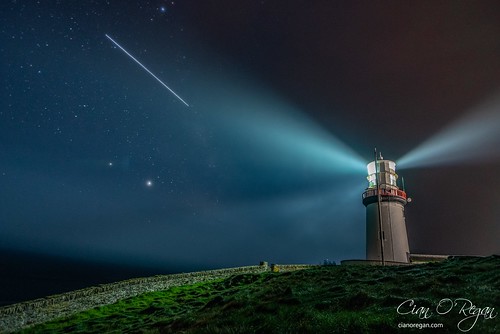
Travelling at 27,500km/h, the International Space Station flies roughly 800km above the Galley Head Lighthouse on Ireland's south coast in this 30-second exposure captured after dark on September 19, 2020. At the time this photograph was taken, the space station was occupied by the three-person Expedition 63 crew consisting of commander Chris Cassidy, and flight engineers Anatoly Ivanishin and Ivan Vagner.
Planets Jupiter and Saturn are also visible shining bright over the Atlantic Ocean.
Galley Head Lighthouse is located just a short drive from the town of Clonakilty in west Cork, and was built in 1875 during the heyday of lighthouse building in Ireland. When Galley Head was first constructed, it was the most powerful lighthouse light in the world.
- AlessandroCantarelli
- Ensign
- Posts: 21
- Joined: Fri May 05, 2017 8:41 am
Re: Submissions: 2021 January
"Star Wars"
180 degrees panorama multiexposure stitch, final size is: 8052 x 4026 px Captured with Sony A7s (land) and Canon 6d astromod (sky) + Sigma 14mm f1.8
Did you recognize him? Yes, the set of the movie Star Wars is the location of this 180°panoramic view of the Milky Way in winter!
Once the sunset was over, the Milky Way began to shine on the sky of this theatre of scenes that have written the history of cinema. Once I found the central antenna, the composition began to form in my mind, automatically.
A key element in the center, clean side exits, the galactic arch in all its splendor.
10 Iso shots 5000 f2.8 30 seconds to get the total overview of the scene.
A second Astro Tracked pano to complete a unique image, which reminds me of an extraordinary moment of Photography.
________________________________
"Frozen Lights"
360 degrees panorama multiexposure stitch, final size is: 15431 x 7715 px Captured with Canon 5d Mark 4 + Samyang 12mm f2.8
I don't think you can communicate the emotion of taking pictures at night inside a glacier, with fever, during a week of a solo trip sleeping in a car and looking for new spots in Iceland.
I have to say that this was one of the most extreme pictures I took, and this gave me so much awareness of my limits, I took home one night of aurora in the glacier, I waited three days for her, in the end, she arrived and I captured her in this 360° panorama.
180 degrees panorama multiexposure stitch, final size is: 8052 x 4026 px Captured with Sony A7s (land) and Canon 6d astromod (sky) + Sigma 14mm f1.8
Did you recognize him? Yes, the set of the movie Star Wars is the location of this 180°panoramic view of the Milky Way in winter!
Once the sunset was over, the Milky Way began to shine on the sky of this theatre of scenes that have written the history of cinema. Once I found the central antenna, the composition began to form in my mind, automatically.
A key element in the center, clean side exits, the galactic arch in all its splendor.
10 Iso shots 5000 f2.8 30 seconds to get the total overview of the scene.
A second Astro Tracked pano to complete a unique image, which reminds me of an extraordinary moment of Photography.
________________________________
"Frozen Lights"
360 degrees panorama multiexposure stitch, final size is: 15431 x 7715 px Captured with Canon 5d Mark 4 + Samyang 12mm f2.8
I don't think you can communicate the emotion of taking pictures at night inside a glacier, with fever, during a week of a solo trip sleeping in a car and looking for new spots in Iceland.
I have to say that this was one of the most extreme pictures I took, and this gave me so much awareness of my limits, I took home one night of aurora in the glacier, I waited three days for her, in the end, she arrived and I captured her in this 360° panorama.
Alessandro Cantarelli - Extreme Panoramic Landscapes
https://alexwides.com/ - https://www.instagram.com/alexwidesphotography/ - https://www.facebook.com/AlessandroCantarelliPhoto - +39 3923277373
https://alexwides.com/ - https://www.instagram.com/alexwidesphotography/ - https://www.facebook.com/AlessandroCantarelliPhoto - +39 3923277373
Re: Submissions: 2021 January
NGC 7793
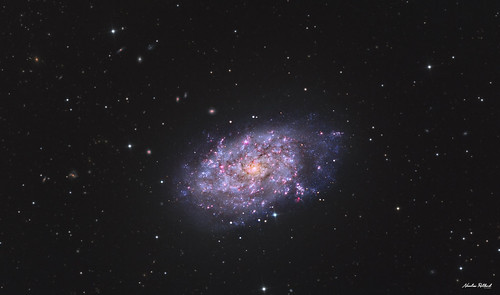
The galaxy NGC 7793
Copyrights
Data acquisition: Martin PUGH
Processing: Nicolas ROLLAND
Acquisition October 2020
Total acquisition time of 28 hours.
Optics: Planewave 17“ CDK @ F6.8
Mount: Paramount ME
CCD: SBIG STXL-11002 (AOX)
Pre Processing: CCDstack & Pixinsight
Post Processing: Photoshop CC

The galaxy NGC 7793
Copyrights
Data acquisition: Martin PUGH
Processing: Nicolas ROLLAND
Acquisition October 2020
Total acquisition time of 28 hours.
Optics: Planewave 17“ CDK @ F6.8
Mount: Paramount ME
CCD: SBIG STXL-11002 (AOX)
Pre Processing: CCDstack & Pixinsight
Post Processing: Photoshop CC
